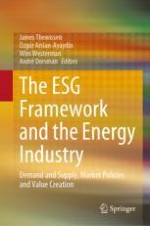2024 | OriginalPaper | Buchkapitel
Do Green Bonds Improve the Stock and Environmental Performance of Energy Firms? International Evidence
verfasst von : Burak Pirgaip, Mehmet Baha Karan, Seçil Sayın Kutluca
Erschienen in: The ESG Framework and the Energy Industry
Aktivieren Sie unsere intelligente Suche, um passende Fachinhalte oder Patente zu finden.
Wählen Sie Textabschnitte aus um mit Künstlicher Intelligenz passenden Patente zu finden. powered by
Markieren Sie Textabschnitte, um KI-gestützt weitere passende Inhalte zu finden. powered by
